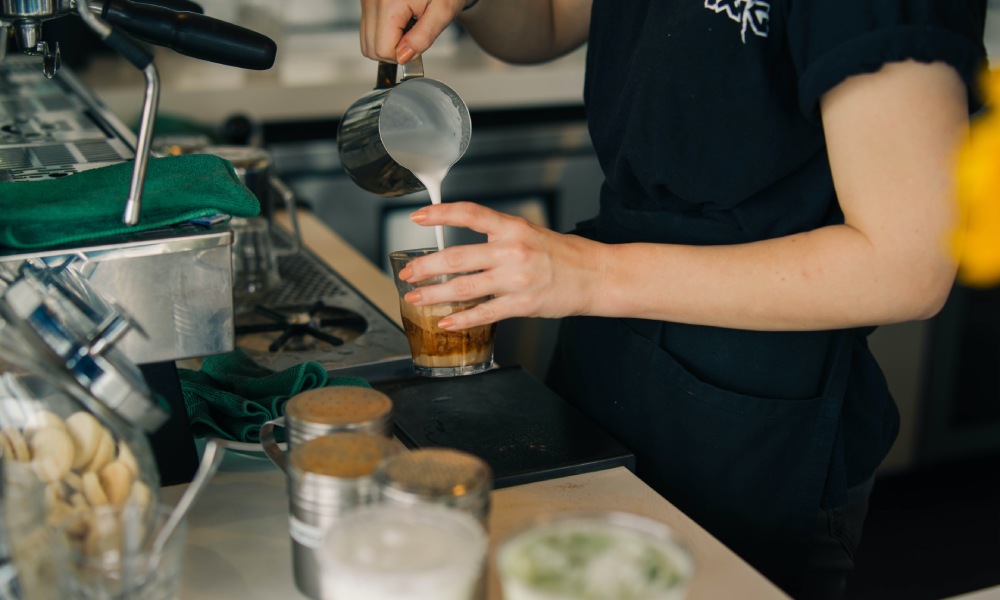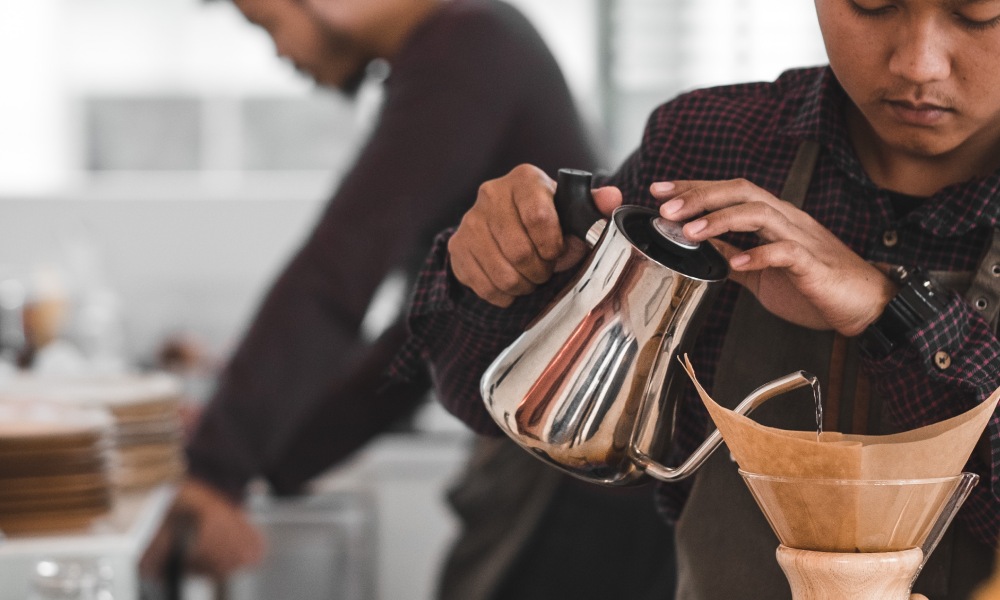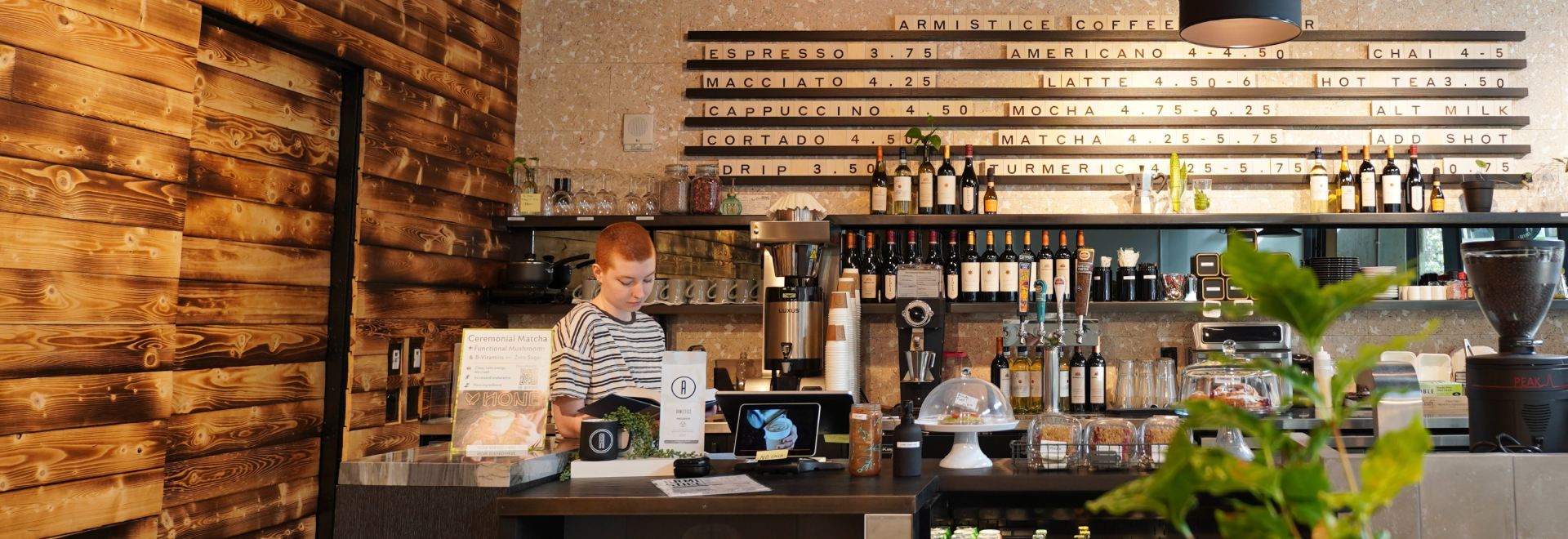A bitter reality: Why do coffee shops fail?
Bronwyn Linkhorn speaks with Aaron Torres Guerrero of Ue Coffee Roasters about the driving forces behind successful coffee shops – and why some are less fortunate.
There have never been so many places to drink coffee.
Between 2009 and 2019, the number of cafés in the UK alone surpassed 26,000, while other markets, such as Germany and France, have also experienced double-digit growth in recent years.
Even in spite of the crushing impact of Covid-19, which forced the temporary closure of many hospitality businesses around the world, most have bounced back to pre-pandemic levels and some have even expanded into new markets.
Driving the growth of coffee shops is their versatility and association with a healthy lifestyle. Today, coffee shops are also more than just a place to buy coffee, being seen as versatile spaces where customers can socialise, work, or spend some time alone.
This, along with a trend among younger generations that has seen alcohol consumption fall, means coffee shops are now expected to outnumber pubs in the UK by 2030.
However, not all coffee shops are successful. According to an April 2019 survey, around 62% of independent coffee shops fail within the first five years of opening, while 17% close within the first 12 months.

Navigating a difficult playing field
From the outset, coffee shops face an onslaught of challenges. Not only do they need substantial start-up capital to get the business off the ground, but they also need to ensure that staff are trained and they have a ready supply of products, from roasted coffee to cups and stirrers.
The overriding aim is to ensure that sales cover costs as soon as possible – or owners risk quickly running into debt. However, getting there is half the challenge and, often, a lot easier than it sounds.
Aaron Torres Guerrero is director of coffee at Ue Coffee Roasters, a UK specialty roastery and café. In his experience, location constitutes 90% of the success of a coffee shop.
He says has seen many coffee shops set up in locations with low footfall, which inevitably leads to failure. Lacking a business acumen, he says, can also make things difficult.
“Poor management is a common reason for failure,” Aaron says. “Just because people are passionate about coffee, it doesn’t mean they will be good at running a business.”
Indeed, this is among the most frequently cited reasons that businesses of any type fail. Although a degree of passion in what you are doing is important, it’s about finding a balance, which, in most cases, will mean putting pragmatism ahead of emotion.
In the fiercely competitive coffee shop market, this is especially salient, particularly in the midst of an energy crisis that has seen costs of production rise and profit margins squeezed. A sentimental commitment to exclusively serving pour-over single origin coffees from Colombia, for example, can be devastating if prices rise.
Luckily, the majority of coffee owners seem to be aware of these realities. When asked to select the two biggest reasons coffee shops failed, 128 out of 232 coffee shop owners selected being “unprepared for ownership”. The second reason they cited was lacking a distinct brand or experience.
Yet even the most aware can still let the business planning side fall in the face of passion, whether this means setting unrealistic targets or overstretching resources.
Finally, consistency and quality are of the utmost importance for any coffee shop that wants to avoid early failure, particularly when it comes to the coffee and customer service.
If customers aren’t presented with a high-quality, repeatable experience every time they come in, it’s unlikely they will come back (or recommend that anyone in their social group does). Word-of-mouth is one of the most powerful tools for coffee shops in their first few years, so ensuring a positive experience for each person who walks through the door is fundamental.

Making your coffee shop a success
As with any business, running a successful coffee shop requires the willingness to continuously learn and adapt.
Consumer trends and preferences are constantly changing and a failure to evolve with them can be devastating for your bottom line. Ten years ago, for example, the thought of ordering cold coffee with oat milk using a mobile app was virtually unheard of – today it’s among the most popular orders for thousands of coffee shops around the world.
Consistent branding and a strong business ethos are also crucial. For this to aid success, it needs to be reflected throughout the coffee shop and its members of staff. Consumers are more conscious than ever about brand values, including environmental awareness, sustainability, and social responsibility.
Simply put, consumers aren’t just looking for quality coffee – modern coffee shops never stop evolving, doing whatever it takes to align with customers’ needs, leading to loyalty and success.
“To succeed, it’s very important to determine who your ideal customer is – and that what you have to offer to them is completely aligned,” Aaron says. “Anyone who opens a coffee shop should work in the industry first and take barista courses to understand coffee, make less mistakes, and move into profit faster.”
He adds that these aspiring owners should look to other businesses in their area to find examples of strategies that work.
“Once established, a coffee shop’s workflow efficiency may also have an impact on success,” Aaron explains. “By maximising the coffee shop’s layout to facilitate seamless service and increased customer engagement, both customers and baristas will experience less stress and more flexibility.”
Overall, launching and running a successful coffee shop is hard work. It demands a range of skills and a good set of employees in an industry where staff turnover can be high. However, instilling sound practices from the outset, alongside a robust business plan, can pay dividends and yield long-term results.







